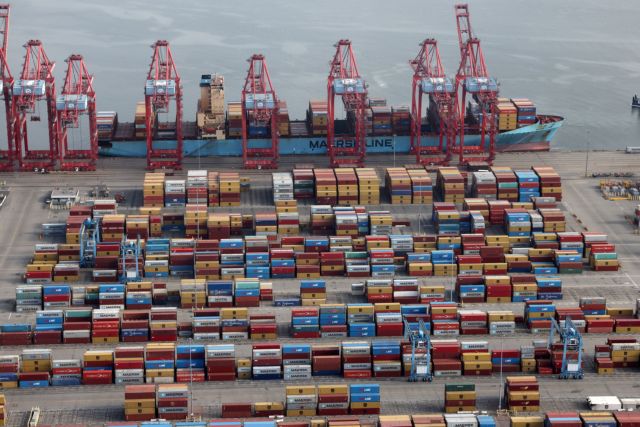The Greek food and beverage sector successfully responded to both the pandemic and the ten-year economic crisis that preceded using exports as a spearhead, notes the National Bank in its analysis of the industry.
In it the bank points out the challenge of expanding the production base, in order to be able to claim additional shares in the international markets.
In the particularly demanding conditions of the pandemic, the agri-food sector showed impressive resilience, as the primary sector achieved a 3% increase in turnover in 2020, while the food industry declined by just -1% (compared to -14% of the rest of the industry). The main support of the industry was its strong export performance, as food and beverage exports increased by 11% in 2020 (compared to 3% for total non-oil exports), recording the highest performance among European countries (-0.5% by average) – dynamics that continued in the first months of 2021.
The reference point of this export penetration is its range of ascent:
– In terms of products, the majority showed an increase in exports in 2020. Fruit / vegetables and dairy products (covering half of the increase in food exports) showed particular dynamics, which managed to gain significant shares in European exports (+ 16% and + 9% respectively).
– In terms of destination countries, there is an increased penetration in the developed markets of Europe by Greek food during the pandemic period (17% share increase in 2020), essentially continuing the successful strategy of the previous decade (14% share increase in 2010- 2020).
Despite the undeniable success of export penetration, it is important to note that it was not achieved with a parallel increase in production, but simply acted as a balance for declining domestic demand. Specifically:
– The agricultural sector, despite the favorable conditions, failed to take advantage of international dynamics (with Greek primary production increasing by only 14% in the last 20 years, compared to 36% in Europe and 170% internationally).
– The Greek food industry has remained stagnant for the last 10 years (while European industry sales have risen by 23%), so food processing remains low (with the food industry adding only 31% to agricultural production, compared to 53% on average in the Mediterranean).
Therefore, the bank points out that in order to enable further export penetration, the next bet for the industry is to strengthen the production base.
According to a model of the National Bank’s Directorate of Economic Analysis, improving agricultural land productivity as well as increasing the added value of the food industry requires corrective interventions in the value chain in the following sectors:
– Technology: increased research and development costs in agricultural production and food industry (0.5% of value added in Greece, compared to 1.8% in Europe)
– Branding: quality characteristics and their promotion strategies, achieving a higher price for products (Greek export prices 20% lower than Europe on average)
– Standardization: reduction of bulk distribution of products through expansion of processing plants, which in turn requires improvement of business environment conditions (food industry adds 31% value o agricultural production compared to 53% in the Mediterranean)
– Collaborations: economies of scale and increased efficiency through increased penetration and efficient operation of cooperatives and other collective entities (17% share of agricultural production in Greece, compared to 40% in Europe).
In this effort, the utilization of the available resources of the order of € 31 billion of the Recovery Fund is considered critical. Through these, strategic actions are promoted compatible with the above interventions that the industry needs in order to unlock its dynamics (subsidies and loans aimed at extroversion, innovation, digitization, and partnerships).
Indicative of the importance given to the agricultural sector is that it is one of the sectors that are directly supported, with exclusive resources of € 0.6 billion for actions such as green agriculture, precision agriculture, digitization, and collaborations (complementing the aid of the order of € 19.2 billion of the CAP).
With the Recovery Fund as a vehicle, Greece can make the necessary reforms and proceed with high-yield investments in order to strengthen the value chain, in an industry that has a clear comparative advantage due to favorable climatic conditions. Based on our estimates, the domestic agri-food sector could double its footprint in the Greek economy (benefit of the order of € 13 billion in terms of value added), in case the aforementioned factors approach the average of European countries.
The examples of other countries (such as Italy in terms of standardization and Israel in terms of technology) can be a guide to successful potential exploitation strategies in both the primary sector and the food industry by unlocking significant production potential.















![Ψηφιακά στοιχεία διακίνησης αποθεμάτων [20ο Μέρος]](https://www.ot.gr/wp-content/uploads/2025/12/taxes-scaled-1-1024x732-1.jpg)




















